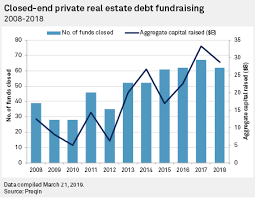The Rise of Real Estate Debt Funds in the Investment Landscape
Real estate debt funds have emerged as a popular investment vehicle in recent years, offering investors an alternative way to access the real estate market. These funds provide investors with opportunities to earn attractive returns through financing real estate projects, while also offering diversification and risk management benefits.
One of the key advantages of real estate debt funds is their ability to generate stable income streams. By investing in a portfolio of real estate loans, investors can benefit from regular interest payments, providing a steady cash flow that is less volatile than equity investments. This income component makes real estate debt funds an attractive option for investors seeking stable returns.
Furthermore, real estate debt funds offer diversification benefits by providing exposure to a range of real estate assets across different sectors and geographies. By investing in a diversified portfolio of loans, investors can spread their risk and reduce exposure to any single property or market segment.
In addition to income generation and diversification, real estate debt funds also offer potential capital appreciation. As the underlying real estate projects appreciate in value over time, the value of the loans held by the fund may increase, providing additional upside potential for investors.
Overall, real estate debt funds have become an increasingly popular investment option for investors seeking exposure to the real estate market with less volatility than traditional equity investments. With their focus on income generation, diversification benefits, and potential for capital appreciation, these funds offer a compelling opportunity for investors looking to enhance their investment portfolios.
Understanding Real Estate Debt Funds: Key Questions Answered
- What are debt funds in commercial real estate?
- Is it a good idea to invest in debt funds?
- What is the difference between debt funds and equity funds in real estate?
- What is a real estate debt fund?
What are debt funds in commercial real estate?
Debt funds in commercial real estate refer to investment vehicles that provide financing for commercial real estate projects through loans. These funds raise capital from investors and then lend it to developers and property owners for various real estate ventures, such as acquisitions, developments, or refinancing. By investing in debt funds, investors essentially become lenders and earn returns in the form of interest payments from the borrowers. Debt funds play a crucial role in the real estate market by offering an alternative source of capital to traditional bank financing, providing flexibility and customized solutions to meet the diverse needs of commercial real estate borrowers.
Is it a good idea to invest in debt funds?
When considering whether to invest in real estate debt funds, it’s essential to weigh the potential benefits against your investment goals and risk tolerance. Real estate debt funds can offer attractive returns through stable income streams, diversification benefits, and potential capital appreciation. However, like any investment, they come with risks, such as market fluctuations and default risk. It’s crucial to conduct thorough research, understand the fund’s strategy and performance history, and consult with a financial advisor to determine if investing in real estate debt funds aligns with your overall investment strategy and financial objectives.
What is the difference between debt funds and equity funds in real estate?
In the realm of real estate investment, the key distinction between debt funds and equity funds lies in their underlying investment strategies. Debt funds primarily focus on providing loans to real estate developers or property owners, earning returns through interest payments and fees. On the other hand, equity funds involve direct ownership stakes in real estate assets, allowing investors to benefit from property appreciation and rental income. While debt funds offer more predictable income streams with lower risk exposure, equity funds typically carry higher potential returns but also higher volatility. Understanding this fundamental difference is crucial for investors looking to navigate the diverse landscape of real estate investment options effectively.
What is a real estate debt fund?
A real estate debt fund is a type of investment vehicle that pools capital from multiple investors to provide financing for real estate projects. These funds typically focus on lending money to real estate developers or property owners, either for new developments, acquisitions, or refinancing existing properties. In return for their investment, investors in real estate debt funds receive regular interest payments and potential capital appreciation based on the performance of the underlying real estate loans. Real estate debt funds offer investors an opportunity to access the real estate market through debt investments, providing a way to earn attractive returns while managing risk and diversifying their investment portfolios.
Tags: capital appreciation, commercial real estate, diversification, financing, income streams, investment, investors, loans, real estate debt funds, real estate projects, risk management
